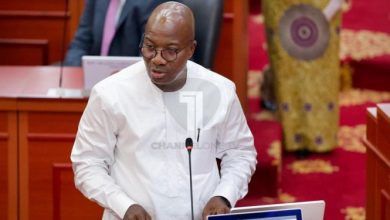Mahama proposes new law to criminalise cocoa farm destruction for mining purposes

President John Mahama is proposing new legislation to criminalise the destruction of cash crops like cocoa for mining purposes.
According to him, it is economically prudent to cultivate cocoa, which can generate income all year-round, compared to mining, which leaves the land barren once the gold is extracted.
Speaking after a courtesy call from the Ghana Cocoa, Coffee, and Sheanut Farmers Association, he noted that preserving cocoa production is vital for the country’s economy.
“We have to ensure that people are not cutting down cocoa trees to mine gold. Once the land is mined out, it becomes useless, whereas cocoa trees can yield revenue for 30 years or more. It makes more sense to preserve cocoa farms than to mine the land and render it barren for future generations,” Mahama stated.
“We are exploring legislative measures to prevent cocoa farm destruction for mining,” he added.
President Mahama also declared the year 2025 as the “Year of Correction” to bring the cocoa sector back on track.
He criticised the Ghana Cocoa Board under the previous administration for its management of the industry, specifically calling out the spending of GH₵3.4 billion last year, which he says was largely used for administrative and headquarters expenses.
“COCOBOD’s total debt today is GH₵ 3.2 billion, and GH₵9 million must be paid by September. This is money that should have gone to farmers but is now being used to service debts,” he lamented.
“Production has declined, yet COCOBOD’s staff numbers have increased, which is counterproductive. In business, when production and revenue decrease, workforce adjustments are made. However, under the previous administration, employment at COCOBOD increased while production dwindled.”
President Mahama emphasised that the key to sustaining cocoa production is ensuring fair pricing for farmers.
He criticised previous policies that saw producer prices fall below 40% and advocated for a minimum of 70% to incentivise farmers.
“In the first four years of the past administration, there was virtually no increase in producer prices, despite currency depreciation. This year will be a year of correction to address these issues and restore the industry to a strong footing,” he noted.




